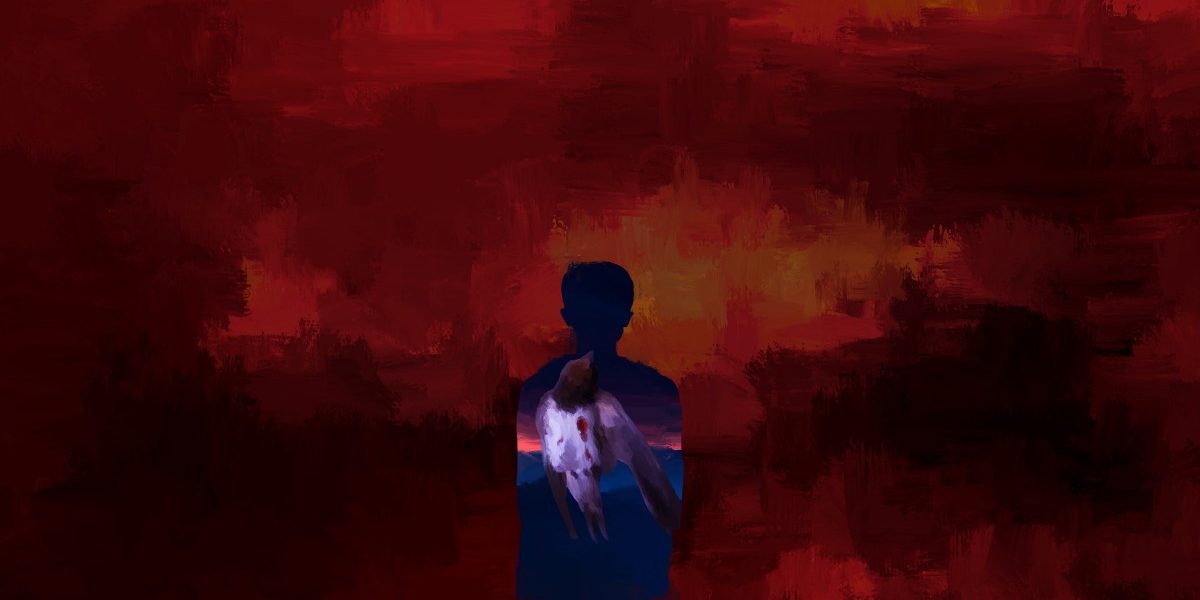In February 2020, exactly a year ago, Northeast Delhi witnessed the most horrific communal riots – the first set of riots to rock the city since 1984. Those few days were my first ever encounter with inhumanity at such a massive scale.
On February 25, 2020, at around 9 am, I along with my three colleagues reached Jafrabad in Northeast Delhi upon receiving an SOS call. On one side, people were protesting against the Citizenship Amendment Act (CAA) near the Jafarabad metro station. A kilometre away, a mob supporting the CAA was raising loud the slogans of ‘Jai Shri Ram’.
As we came close to the crowd supporting the CAA, some people came to us and started asking our names. While all three of my colleagues were Hindus, I was the only Muslim among them. One of my colleagues, Sumit Kumar Gupta, a lawyer at Saket court, gave his name and said that we had come to help people being affected. However, the mob continued asking our names. My colleagues somehow managed to change the topic and we decided to leave.
Before we could, a crowd of 20-25 people surrounded us and started playing the name game once again. For the first time in my life, I felt scared because of my name. I know for a fact that even if one of my colleagues uttered my name even by mistake, the mob could have done anything to me. We somehow managed to extricate ourselves from the precarious edge we found ourselves at.
The next morning, on February 26, 2020, we received another SOS call – some people in the riot-affected area of Mustafabad were seriously injured and needed to be taken to the hospital. I immediately left for Mustafabad on an ambulance to help the victims. I was accompanied by the ambulance driver and a compounder.
On reaching there, we saw that a large number of police personnel had been deployed in the area. We informed the police that a 75-year-old paralysed Muslim man was trapped in Shiv Vihar’s street number five and needed to be rescued. Two Delhi Police personnel accompanied me from there onwards.
Also read: How Hate Spread Its Wings in Delhi: Why February 25 Will Haunt Me Forever
On our way to Shiv Vihar, we saw the violence unfold before our eyes. Homes were being set on fire as mobs looted houses, taking away utensils, air conditioners and anything they could lay their hands on.
I realised the mob was burning the Quran when I accidentally stepped on its sacred pages. Scared of the rampaging mob, I could not pick up the pages. And though I am not devoutly religious, seeing pages of the Quran being burnt and my inability to pick up its pages stings me till date.
Meanwhile, the 75-year-old Muslim man who had to be rescued was given shelter by a Hindu family. However, when the two policemen and I reached the old man, who had been in paralysed long before the Delhi riots, he started throwing about his hands and legs – perhaps out of fear.
When we returned to the ambulance, I saw the driver and compounder surrounded by a mob of 15-20 men. The driver told us that the mob was asking for their names and ID cards for verification. The mob had checked their phones and warned them not to come to the area again. The crowd did not do anything to the driver and the compounder as they were both Hindus, but they were both very shaken. They asked me to leave the old man in Mustafabad at his relative’s place and dropped me at LNJP hospital, before cautioning me not to go to the area again.
Back then, the driver and compounder were spared by the mob because they had Hindu names.
But what if they had asked me my name? I have no clue what I would have answered or what they would have done if they had found out my real identity, my real name after rifling through my phone. I am an advocate, but in that situation, no law degree was capable of saving me.
My only identity at that time was that I was a Muslim.
Paradoxically, even the two policemen, holding sticks, would not have been able to save me from the mob. Some personnel were talking with rioters in a very soft tone. Perhaps they themselves were afraid of the ‘Jai Shri Ram’ crowd – as it is, as I saw clearly with my own eyes, the police took no action to stop the arson and loot taking place right in front of them.
The Delhi riots of February 2020 left 53 people dead and hundreds injured. Now, working with the victims of the Delhi riots, I often wonder whether my trauma from a brief encounter with the riots is even comparable to their sufferings. I have not lost anything, however, so many have had loved ones snatched away from them and are without shelter even as they continue to struggle to earn their livelihoods.
Adil Amaan is a legal fellow at Karwan-e-Mohabbat, Delhi.
Featured image credit: Pariplab Chakraborty

